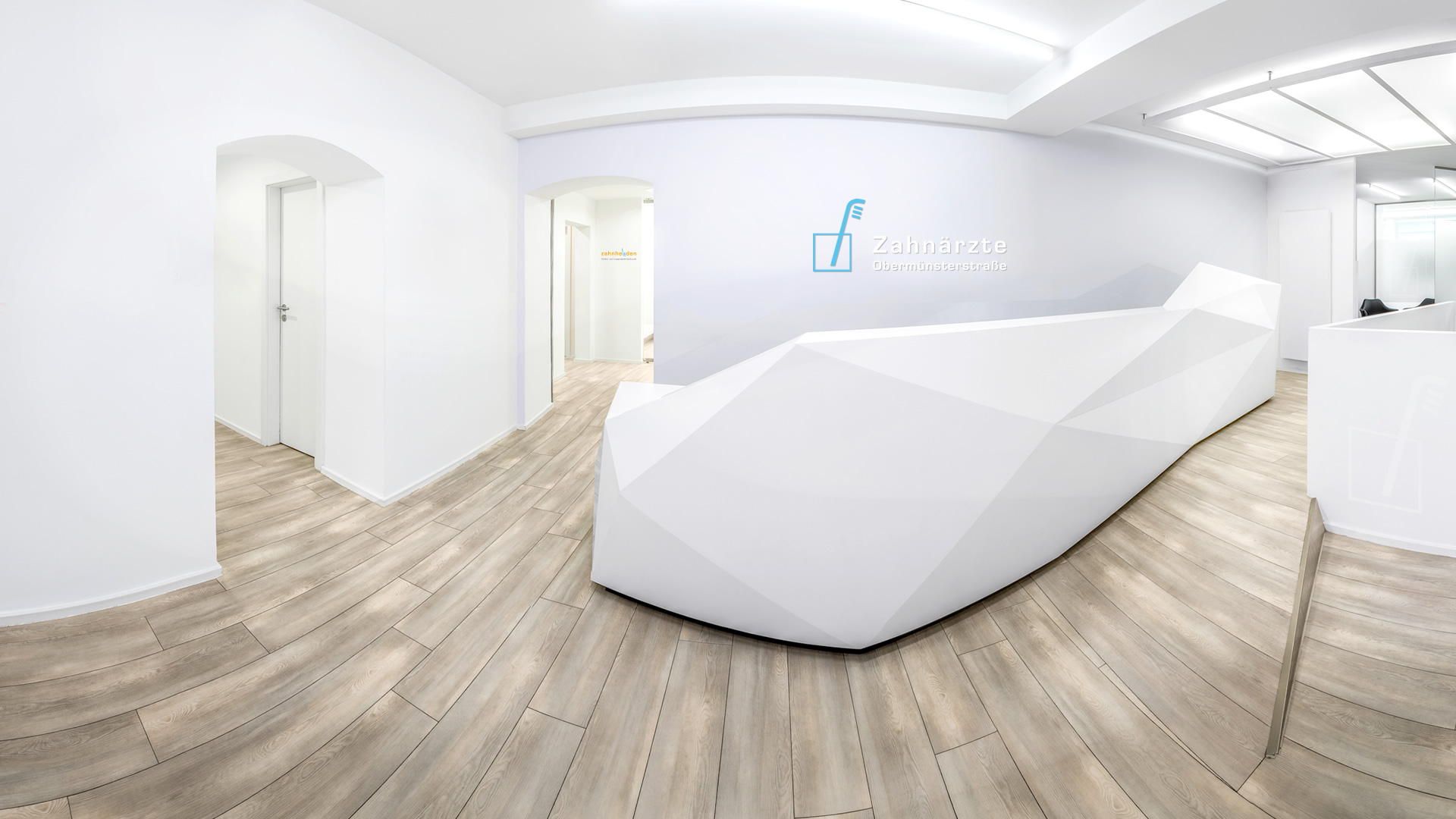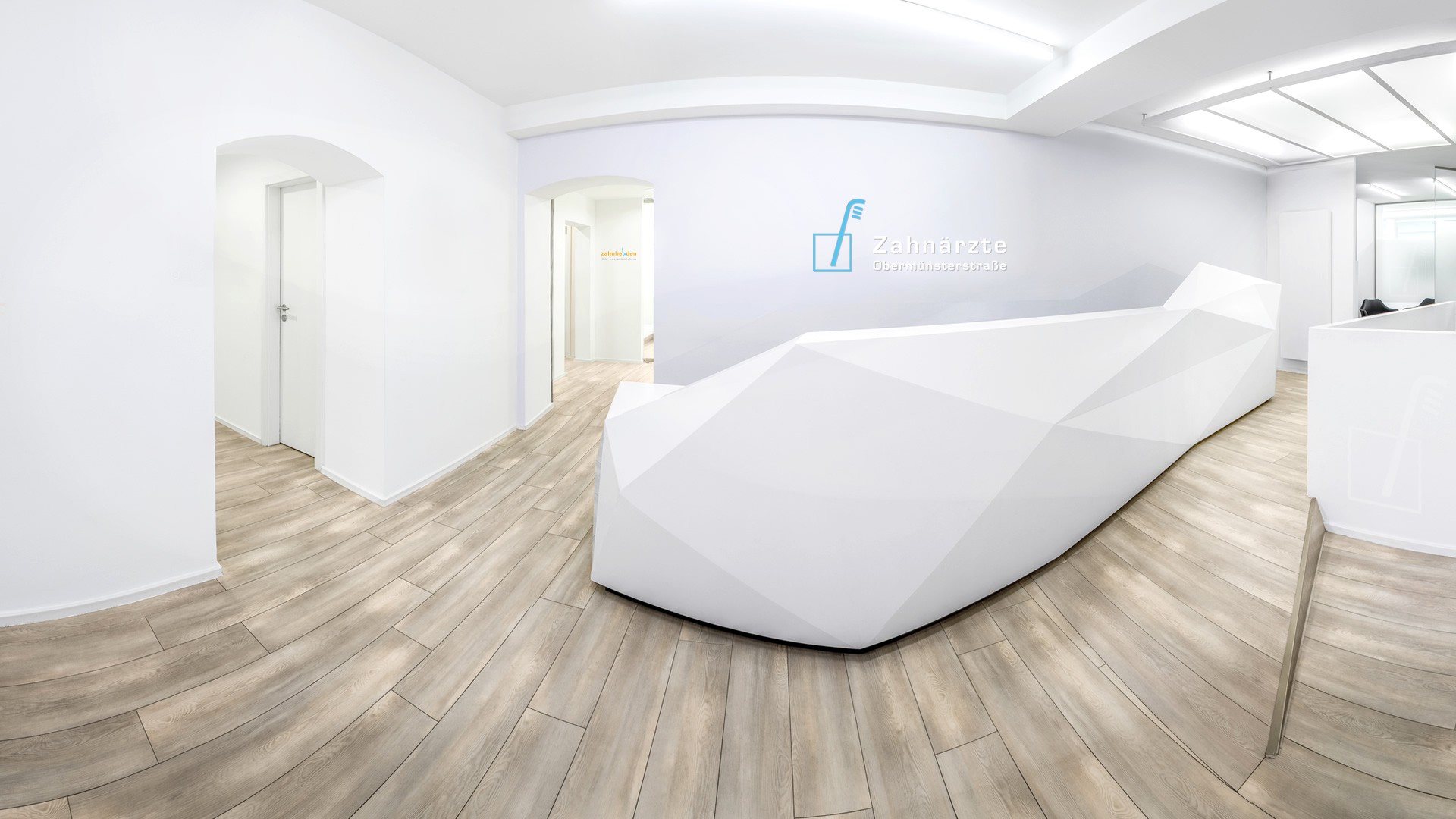Your dentists in Regensburg - Dental practice Dr. Blank Dr. Siegmund Dr. Hieronymus
section_component
Traumata
ExpiredGuidance for Parents to prevent trauma
Dear Parents,Has your child just experienced a dental accident? We'd like to give you some initial guidance to help you assess the situation better. First and foremost, please remain calm and try to reassure your child as well.
For an accident involving a baby tooth:
- A loosened or slightly displaced baby tooth is not urgent, and you can visit us the next day. Please do not attempt to push the tooth back into its corresponding position. However, if your child can no longer properly close their mouth due to the accident, please come to us immediately so we can discuss and plan appropriate treatment with you.
- If a piece of your child's tooth has broken off, please visit us within the next three days. If it is bleeding from the tooth itself, come the same day.
- If the baby's tooth has been completely knocked out, please do not attempt to reinsert the tooth. It is sufficient to visit us within the next three days.
For an accident involving a permanent tooth, please consider the following:
- If the tooth is loosened or displaced, please leave it in its position and come to our practice as soon as possible with your child.
- If a piece of the tooth has broken off, please keep it in clear, clean water and bring it to our practice with the tooth fragment.
- If your child has completely knocked out a tooth with the root, it is best to place the tooth in a tooth preservation box (available at pharmacies). If this is unavailable, wrap the tooth in cling film or put it in cold milk. Seek our help immediately! Never store or clean the tooth dry!
Nutrition
ExpiredThe 4 Pillars for Healthy Teeth
The "4 pillars" for healthy teeth include regular dental check-ups (at least 2 times a year), the use of fluorides, conscientious home oral hygiene, and a healthy and balanced diet.The leading cause of tooth decay is sugar
Many parents know that chocolate, candies, and other sweets contain sugar. However, hidden sugars, which, strictly speaking, also belong to the category of sweets, are overlooked. These include all carbohydrates such as glucose (grape sugar), sucrose (common sugar), lactose (in all dairy products), and fructose (fruit sugar in fruits and honey). Therefore, the label "no added sugar" does not automatically guarantee tooth-healthy nutrition.General advice: it's better to consume a larger amount once a day than small amounts spread throughout the day. This prevents the teeth from being constantly bathed in sugar. Also, pay attention to the tooth logo on sweets.
Chewing a lot helps with dental cleaning
So-called "chewing-intensive" foods like carrots, whole grain products, and meat have a tooth-friendly effect as they partially scrub away dental plaque, massage the gums, and positively influence the quantity and quality of saliva.Acidic foods can attack tooth enamel
Also recommended are cheese, cold cuts, spreadable cheese, and spreadable sausage as alternatives to sweet spreads, as well as plain quark or yoghurt with fresh fruits, milk, tea, fruit, and plain water. Avoid sweet spreads, honey, muesli, instant teas, sweetened fruit yoghurt, children's yoghurts, chocolate, and chips. Soft drinks, Fanta, cola, and juices (including unsweetened and nectar) contain many sugar and acids that attack tooth enamel.Preventing early childhood caries
Toddlers should transition from the bottle to the cup by the first year of life.The bottle should only be constantly available or given overnight if filled with pure water. Sweet drinks, juices, diluted fruit juices, milk with sugar or honey, and sweetened tea in the bottle can damage baby teeth, leading to "early childhood caries". When it comes to ready-made baby food, carefully examine the ingredient list to avoid hidden sugars. Prolonged breastfeeding can also lead to caries due to the lactose content in breast milk.We are happy to provide detailed advice on the "4 pillars," including a nutrition plan upon request.
The Deciduous Dentition
ExpiredInteresting Facts about Children's Teeth
The deciduous dentition consists of 20 teeth. Each jaw has 4 deciduous molars, 2 deciduous canines, and 4 deciduous incisors. Both deciduous and permanent teeth are already formed in the jaw before birth. On average, the first deciduous tooth erupts at around six months, and the last erupts at about 30 months. However, there is a considerable range in this timing.Deciduous teeth are more susceptible to tooth decay. The transition from deciduous dentition to permanent dentition occurs around the age of six. By about eleven years old, the child has lost all deciduous teeth. Deciduous teeth are structured differently from permanent teeth. They have a much thinner enamel, which makes them more susceptible to tooth decay. Further differences compared to permanent teeth arise in treatment.
It is important to preserve deciduous teeth until they are replaced by physiological teeth, as they perform many essential functions. They serve for biting and chewing solid food, ensuring clear pronunciation and age-appropriate swallowing, are crucial for proper jaw development, and act as space holders for permanent teeth.
Early loss of deciduous teeth can lead to problems. If deciduous teeth are lost prematurely, it can cause delayed eruption and displacement, resulting in misalignment of teeth and jaws. Premature loss of front teeth is not only an aesthetic problem; it can also lead to an unphysiological swallowing pattern and hinder speech development. Jaw misalignments can also be inherited or congenital or arise from thumb sucking or pacifier use. Such habits should be addressed during the primary teeth period to ensure proper development in the early stages.
FAQ zum Thema Endodontie
Endodontie ist entscheidend, um die Gesundheit Ihres Zahns zu erhalten. Hier finden Sie Antworten auf einige der häufigsten Fragen, die unsere Patienten zu Endodontie haben.
Was ist Endodontie?
Was ist eine Wurzelkanalbehandlung?
Wann ist eine Wurzelkanalbehandlung notwendig?
Ist eine Wurzelkanalbehandlung schmerzhaft?
Wie erfolgreich sind Wurzelkanalbehandlungen?
Wie geht es mir nach einer Wurzelkanalbehandlung?
Wie lange hält ein Zahn nach einer Wurzelkanalbehandlung?
Gibt es Alternativen zu einer Wurzelkanalbehandlung?
Übernimmt meine Versicherung die Kosten einer Wurzelkanalbehandlung?
Wenn Sie weitere Fragen zur Endodontie haben oder einen Termin vereinbaren möchten, zögern Sie nicht, uns zu kontaktieren.





